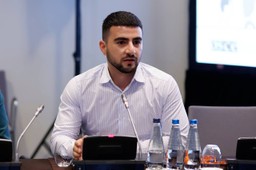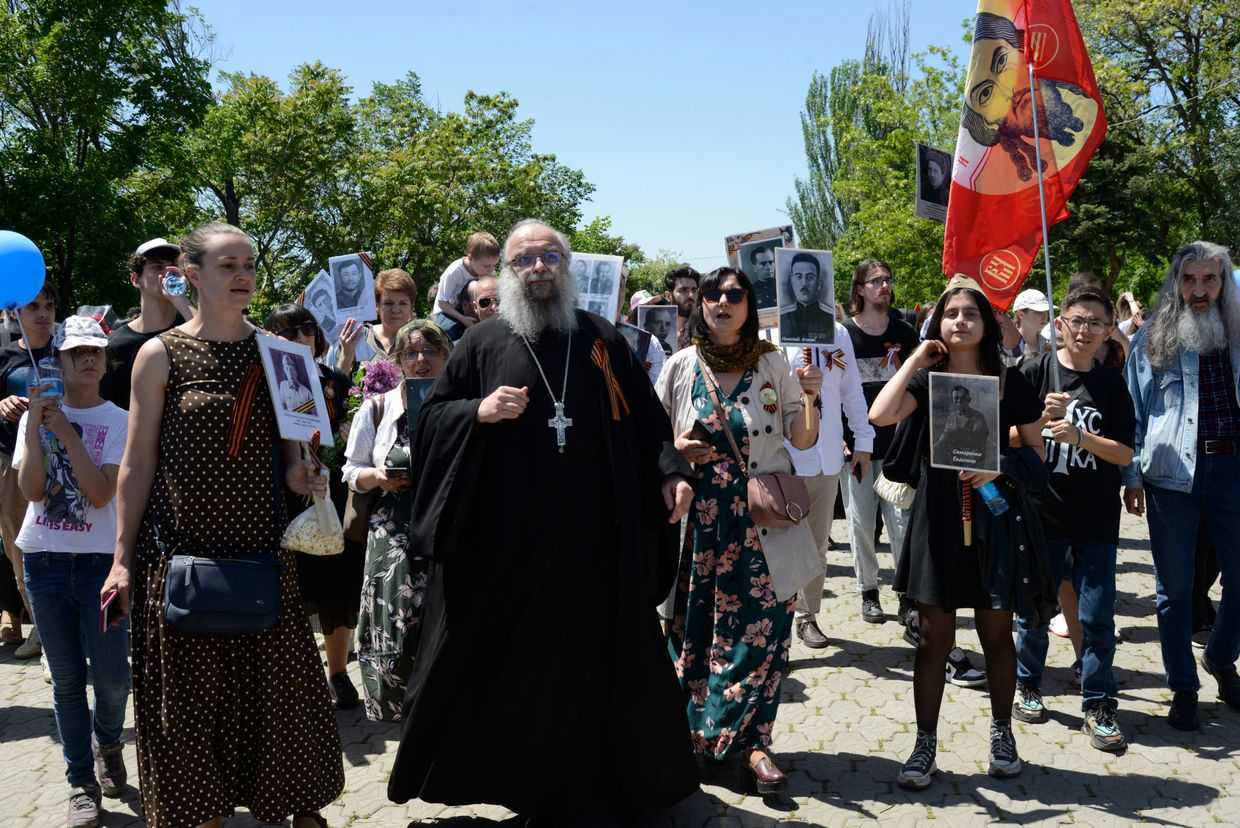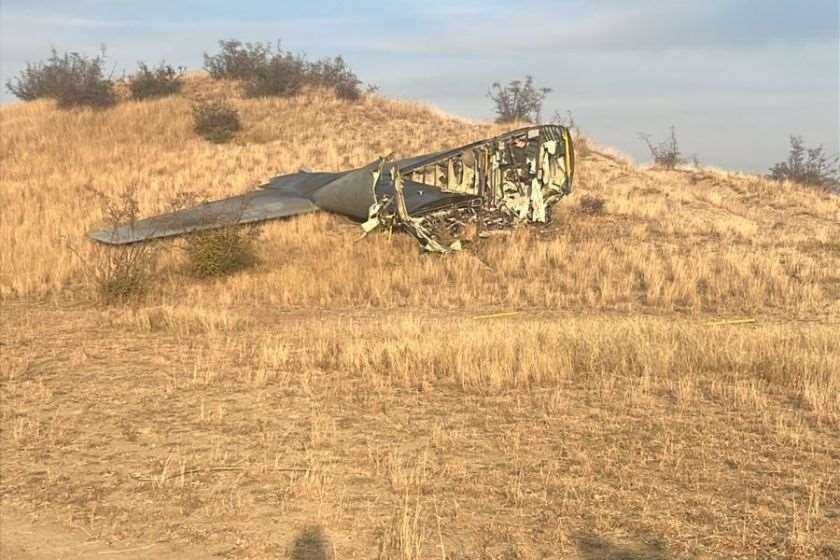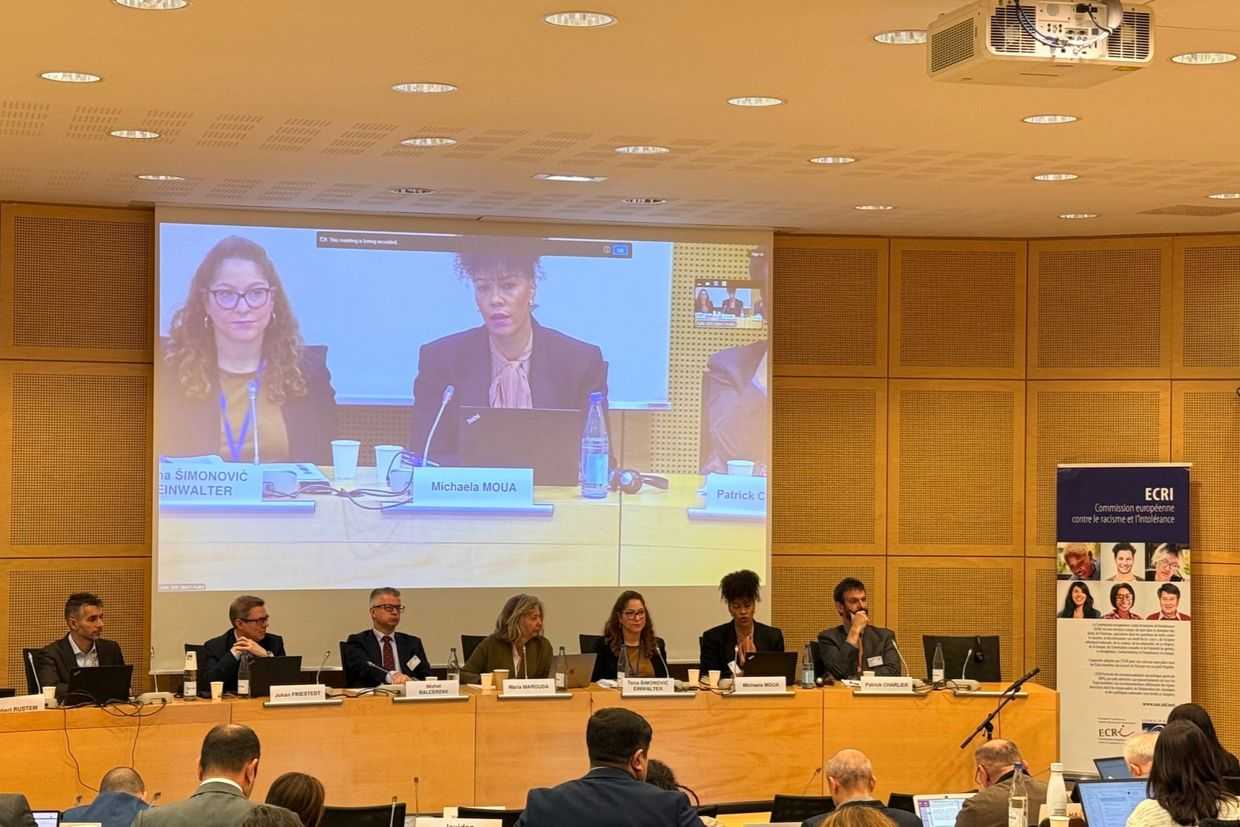Opinion | Solidarity without borders: For Bahruz, for Georgia, for all of us
The South Caucasus is standing at a crossroads — yet our struggles are connected and none of us can afford to stand alone.

In the South Caucasus, to speak of peace and freedom has become unpopular and dangerous. Whether in the streets of Tbilisi or the prison cells of Baku, those who challenge power, demand dignity, or reject nationalism now face a price few are willing to pay.
In Azerbaijan, the jailed peace activist and political philosopher Bahruz Samadov is one of those who still chose to speak truth to power.
His recent sentencing to 15 years in prison, following a suicide attempt, has led me to reflect on the importance of meaningful solidarity in the face of growing authoritarianism in the South Caucasus, and ask why we often fail in this regard to stand with each other across borders.
Since its victory in the Second Nagorno-Karabakh War and the full takeover of the region, Azerbaijan has grown even more authoritarian. Its crackdown on civil society has deepened, while the country’s land borders remain closed, officially due to the COVID-19 pandemic, creating further isolation and fear.
In Georgia, once considered the democratic hope of the region, peaceful activists are being harassed, and anti-democratic laws pushed by the ruling Georgian Dream party have triggered mass protests, police violence, and growing disillusionment. In Armenia, where democratic reforms have stagnated and public trust has eroded after years of war, internal crisis and polarisation, many now watch with uncertainty and fatigue, unsure whether real change is still possible.
In a time when speaking up for truth, justice, democracy, or peace has become a lonely act, we must not only redefine what solidarity means but we must strengthen our efforts in support of those who speak truth across borders and recognise that their struggle is our own. Now more than ever, they need our voices, our courage, and our unwavering support.
Bahruz and the price of integrity
Bahruz Samadov stood for a principled, uncomfortable kind of peace. Unlike many of us, Bahruz demanded accountability from his own side — something some of us still fail to do even in Armenia, where there are formally all the protections for freedom of speech. However, most of us exercise self-censorship and are cautious to reflect on our own wrongdoings. Bahruz spoke openly against authoritarianism, militarism, and the weaponisation of nationalism in Azerbaijan long before his arrest.
What made Bahruz’s voice so rare was the way he approached the Armenia–Azerbaijan conflict. His demand for peace was not transactional. He didn’t reduce war to whose suffering mattered more or to protecting the interests of his own nation. And perhaps most uncomfortably for many in his own country, and some in ours, he treated Armenians not as enemies to be tolerated, but as people to be in solidarity with, transcending borders and ethnicities. This is the most valuable lesson that Bahruz has taught us all.

In Azerbaijan, where civic space has shrunk to almost nothing, where critics are detained and fear is normalised, Bahruz’s arrest did not come as a surprise.
Yet in Armenia, it was only after this that many began to speak about Bahruz with admiration. In some circles, he was even hailed as a symbol of hope, of ‘the other Azerbaijan’, the one we wish existed, but rarely allow ourselves to believe does. And yet, we must be honest: if Bahruz were still free, still writing, still challenging both his state and our assumptions, would we have listened?
Standing in solidarity with someone should not only happen when they are oppressed and silenced, but also while they are still speaking. I believe Armenians often fail to see that there are Azerbaijanis who refuse to dehumanise us or support the state’s policies. Many of them are victims of the same system that ethnically cleansed Nagorno-Karabakh. We should not wait for these people to be jailed before we recognise them.
The struggle of jailed Azerbaijanis may look different from the protests in the streets of Tbilisi, but they are deeply connected: none of us can afford to stand alone in our fight.
Georgia: A resistance still on its feet
While voices like Bahruz’s are being silenced in Azerbaijan, in Georgia they are still shouting in the streets and online. What began as protests against the so-called ‘foreign agent’ law has become something deeper: a mass refusal to let democratic institutions be dismantled. Youth, civil society, artists, students, and ordinary people have come together to resist Georgia’s drift into authoritarianism.
Unlike in Azerbaijan, this fragile resistance is still visible. The ruling Georgian Dream party has already passed laws that restrict foreign funding, attacked independent media, and enabled police violence against peaceful protesters. The government has tried to paint critics as enemies of the state, foreign puppets, or ‘traitors to tradition’. These are tactics common to authoritarian regimes: turning the population against itself, blurring the line between democracy and ‘foreign interference’, and making citizens fear each other more than they fear losing their rights.

What is happening in Georgia matters far beyond its borders. Georgia is now a frontline in the regional struggle for civic space, free speech, and political dignity. If it loses its fragile democracy, the South Caucasus risks becoming a region where freedom is not just threatened but remembered only in the past tense. This also puts Armenia’s democratic project at risk. It is hard to imagine a democratic Armenia surviving, let alone thriving, when it is surrounded by authoritarian states on all four sides.
For many of us in Armenia, Georgia’s struggle is close to heart. But I also hope that more Georgians will take this moment to reflect on how, for a long time, they failed to stand in solidarity with Armenians or to see us as equals.
For too long, Armenia has been dismissed as a satellite of Russia, and our people not seen as fellow victims of the same empire that continues to threaten all our countries. But Armenian people were never given the chance to make independent choices, just as Georgian people today are not siding with Russia, but are being pushed in that direction through authoritarian coercion.
Those of us in Armenia, Azerbaijan, and elsewhere must recognise what is at stake. We cannot afford to watch Georgia’s resistance with passive admiration. Solidarity means understanding that their fight is connected to ours and that what happens in Tbilisi today will echo in Yerevan, Baku, and beyond. We should continue speaking about Georgia, ringing the bells whenever and wherever we get the chance. The international community and the democratic world should not watch idly but should take measures to ensure that the voices of Georgians are heard.
A South Caucasus worth fighting for
Bahruz’s detention, the protests in Georgia, and the uncertainty in Armenia are signs of a region standing at a crossroads — between democracy and authoritarianisim, between peaceful coexistence and endless cycles of violence.
We are used to seeing borders in the South Caucasus as lines of division. But there is also something that connects us, including shared wounds and shared disappointments, but also shared possibilities. The fight for freedom in Tbilisi is the fight for freedom in Yerevan and Baku. If Bahruz’s voice is silenced, if protest is crushed in Tbilisi, if disillusionment takes over in Yerevan, we all lose.
Solidarity in the South Caucasus must be rooted in principle. Our solidarity must be brave enough to recognise voices like Bahruz’s before they are jailed. It must be open enough to support Georgian protesters while also demanding reflection and mutual respect. And it must be honest enough to confront our own blind spots as Armenians, as Azerbaijanis, as Georgians, if we are to build something better.
Because peace is not only the absence of war, and democracy is not only elections — they are both acts of imagination and of courage.
This piece is not just about Bahruz, nor is it just about Georgia or Armenia. It is about all of us, our shared vision, and the kind of South Caucasus we still have a chance to fight for. For better or for worse, our fates are intertwined, and the sooner we realise this, the sooner we can start changing the course of our region’s history.










